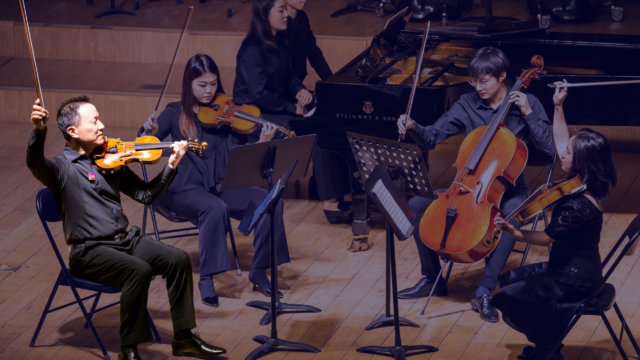New Visa Fee Rules Finalized; Taking Action on Ticketing Policies
February 8, 2024
In This Issue
- Final Visa Rule Sets New Fees, Effective April 1, 2024
- Ticketing Action Continues in Congress and at FTC
Final Visa Rule Sets New Fees, Effective April 1, 2024
Orchestras that file visa petitions for international guest artists now can plan for new filing fees and procedures that will take effect April 1, 2024. Nearly a year after issuing its original proposal, U.S. Citizenship and Immigration Services (USCIS) has published a final rule with fees that are reduced from the amounts initially proposed for 501(c)(3) nonprofits and certain small businesses with 25 or fewer employees. The new fees are paired with revised policies, and all arts petitioners will experience higher costs, increased petition preparation requirements, and lengthier timeframes for Premium Processing.
The League of American Orchestras went on record alongside 120 arts organizations and businesses in joint comments to oppose proposals that would more than triple the current artist visa filing fee, cap the number of beneficiaries for group petitions, and lengthen the time USCIS has to respond to petitions filed via Premium Processing Service. These messages were reinforced in comments from Rep. Chellie Pingree (D-ME), Rep. Maxwell Frost (D-FL), and the Small Business Administration’s Office of Advocacy. The final rule acknowledges the input agency officials received, stating that, “After considering public comments, in the final rule, DHS exercises its discretionary authority to establish fees, balancing the beneficiary-pays and ability-to-pay principles, and to address the negative effects that commenters stated would result, by exempting the Asylum Program Fee for nonprofit petitioners and reducing it by half for small employers.”
Arts-specific changes are as follows, effective April 1, 2024:
Petitioners filing the Form I-129 to seek the O classification (including O-1B and O-2) will need to submit the following fee:
- $530 for U.S. non-profit organizations (approximately 15% increase from the current fee)
- $530 for filers with 25 or fewer full-time-equivalent employees, plus a $300 Asylum Program Fee, for a total fee of $830
- $1055 for all other filers, plus a $600 Asylum Program Fee, for a total fee of $1655
Petitioners filing the Form I-129 to seek the P classification (including P-1B, P-3, and P-S) will need to submit the following fee:
- $510 for U.S. non-profit organizations (approximately 11% increase from the current fee)
- $510 for filers with 25 or fewer full-time-equivalent employees, plus a $300 Asylum Program Fee, for a total fee of $810
- $1015 for all other filers, plus a $600 Asylum Program Fee, for a total fee of $1615
A maximum of 25 beneficiaries will be allowed on a single petition for O-2, P-1, P-3, and P-S classifications. As a result, a large ensemble exceeding 25 beneficiaries will need to file multiple petitions, each with the relevant fee paid. Premium Processing Service (PPS), which requires an additional fee that increases to $2,805 beginning February 26, 2024, will change from 15 calendar days to 15 Federal business days for a response from USCIS.
The League and its partners continue to review implications of the final rule and are asking USCIS to clarify instructions for arts petitioners. Further detailed information will be posted to the League’s dedicated website, Artists from Abroad, in the coming weeks.
Ticketing Action Continues in Congress and at FTC
Thanks to the many orchestras that have taken action to weigh in with Congress to encourage support for S. 3457, the Fans First Act, a bipartisan Senate bill that would create new protections for ticket sales on both the primary and secondary markets. Your ongoing advocacy is essential, and we continue to encourage action through The League’s Ticketing Policy Action Center.
Meanwhile, the Federal Trade Commission (FTC) has proposed new national rules for marketing and sales of a wide range of goods and services, following scrutiny of hidden fees. The draft rules would require sellers to display the total price of items for sale where prices are displayed and advertised, and to accurately represent the nature and purpose of fees that are charged. Many states have similar requirements in place or under consideration.
The League, in partnership with the wider nonprofit performing arts sector, analyzed the proposal and submitted comments to the FTC to surface questions about how the rules would be applied to the nonprofit, subscription-based, and donor-supported ticketing models, and to go on record with concerns related to predatory activity in the secondary tickets sales market. The comment period closed on February 7, 2024. The FTC will now review all comments before issuing final rules, along with an implementation timeframe. Learn more and stay tuned in the League’s Ticketing Policy Overview.
Related
-
Learn | Travel with Instruments
Know Your Bow: New Rules and Essential Steps for Pernambuco Sustainability
-
News | Advocacy
NEA, Bow Owners, Visas, and Charitable Giving
Become a member
Thank you for your interest in the League of American Orchestras! We are dedicated to advancing the orchestral experience for all.
Join Now
